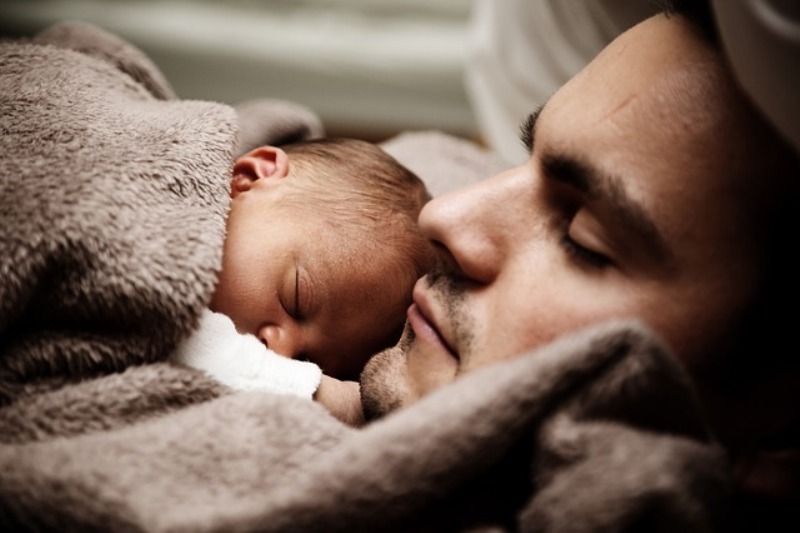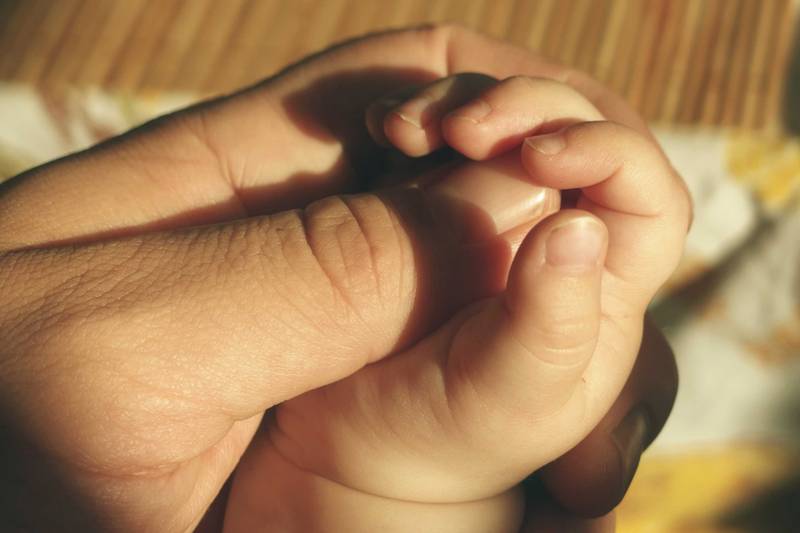With Mark Zuckerberg having brought the paternity leave issue center stage, the usual dissection has followed. People pro paternity leave have welcomed the move with open arms, while there exist people on the other end of the spectrum who still view the move with some unwarranted suspicion, what with the most recent proponent for the same being a tech billionaire. Any which way, a real vivisection of society and a closer look at statistics has turned the flaky rationale of haters on its head, stating that paid paternity leave is an actual enabler for woman in the personal as well as professional realms.

Image source: Google, copyright-free image under Creative Commons License
This provocative study of over 22,000 companies in 90 countries has found that the places with the highest percentages of women in leadership, including in the boardroom and at the executive level, offered fathers 11 times more paternity leave days than those countries at the bottom. The top countries included Norway (at least 14 weeks for fathers), Italy (26 weeks, shared between parents) and France (26 weeks paid). The study, released by consulting firm EY and the Washington-based Peterson Institute for International Economics, confirms that such figures only corroborate that robust support for working parents strengthens gender equality at home, at the workplace and in society in general.
Not only does paid paternity leave diminish the wage gap between genders, it also promotes equitable representation of the sexes at the workplace, lesser hiring discrimination, more competitive advantages for companies that ensure a fair distribution of leadership roles and a much-needed equalizing move in the domestic sphere.

Image source: Google, copyright-free image under Creative Commons License
It is not a hidden fact that most women tend to suffer a professional setback when they take a break from their career, get married and plan a family. In fact, sociologist Michelle Budig avers that a woman’s salary decreases by 4% for every child she has while a man’s salary increases by 6% on an average for every child he parents. Similarly, women tend to fall the easiest preys to the antiquated notion of being the primary caretakers of children. Especially so, when they are offered higher paid maternity leaves as against their partners who are welcoming the same child. Such archaic policies reinforce gender roles in the domestic realm and strongly stress upon child rearing as a woman’s prerogative. On the other hand, when paid paternity leaves are at par with the maternity leaves, men tend to participate more in child rearing activities such as diapering, feeding and playing as against men who take a cursory leave or no leave at all. This helps to close the gap between women’s extended leaves for handling child-care duties, alleviate the reprimands for the same as well as decrease hiring discrimination against married women or those of marriageable age. In fact, a special sociological study conducted by Arlie Hochschild found that any program that increased the paid paternity leave for beyond the two-week minimum increased their time spent on household chores. In fact, a Quebec program confirmed a 23% increase in the time men devoted to household responsibilities during a five-week paid paternity leave.
Suggested read: Lessons a father would teach his daughter
And it isn’t just the familial domain that benefits by way of paternity leaves. Paid paternity leaves bring in a gamut of benefits for the business as well. Paid paternity leaves close the wage gap, ensure equitable representation of genders in leadership roles (a company with 30% women in leadership roles has profits that are six percentage points higher than ones with no women serving at higher echelons), bolster company performance, promote retention rates by reducing turnover costs and cast an undeniably positive effect on employee loyalty and job performance.
As such, what may seem like a cushy fringe benefit to a country like the United States where even paid maternity leave is a hassle, it seems like there is much to be learnt from the latest report released by Peterson Institute. Marcus Noland, executive vice president and director of studies at the Peterson Institute, states that,
“In countries that are more family-friendly and have greater support for child-bearing and rearing, women experience less disruptions in their careers and are more likely to make it to the top.”
The same is evinced by statistics that confirm that women living in countries with family-friendly provisions for paid paternity leaves suffer minimal to no setback on their career trajectory, earn high salaries and report lower rates of postpartum depression.
Critical to the well-being of women, the idea makes intuitive sense for families, businesses and society as a whole. Don’t you think?
Featured image source: Google, copyright-free image under Creative Commons License






![[Valentine’s Day Special] Top 10 Romantic Vacations You And Your Lover Can Take This V-Day](http://www.newlovetimes.com/wp-content/uploads/2016/08/couple2-150x150.jpg)






